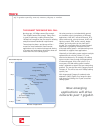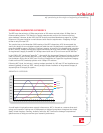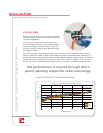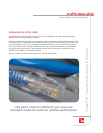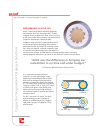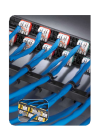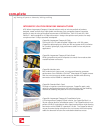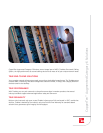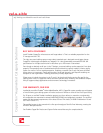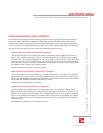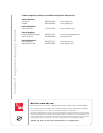
THE GIGABIT THRESHOLD WILL FALL
Not long ago, 100 Mbps seemed like enough.
Then Gigabit seemed like enough. Today, when
it comes to planning a cabling infrastructure,
10Gbps has emerged as the next step for satiating
enterprise network bandwidth requirements.
There always has been—and always will be—
a need for more bandwidth. Data-intensive
applications such as network storage and sharing
of imaging and engineering documents alone can
stretch the limits of a cabling system.
Yet what promises to incite bandwidth growth
on a broader scale is the explosion of IP-based
applications: VoIP, WiFi, industrial Ethernet, IPTV,
video conferencing, security cameras, HVAC and
lighting controls, RFID, access controls, badge
readers, and many others on the shelf and in
the lab. This cumulative effect of more IP-based
applications is propelling more data over the
structured cabling system—and demanding more
bandwidth to support these applications.
Historically, a LAN cabling system endures multiple
replacements of switches, routers, PCs, and
other active electronics. On average, the cabling
system remains intact through three generations
of networking gear. With a life cycle of 15 or
more years, the LAN cabling system installed
today is expected to support the next networking
protocol. This was the case with Category 5e and
Category 6. This will be true with 10Gbps cabling
systems, too.
With Augmented Category 6 standards to be
adopted in 2006, Gigabit is no longer the plan-
ning target for building the 15-year structured
cabling system.
E-Mail
Static Web Pages
Interactive Web
Integrated Messaging
CRM
ERP
Voice Over IP
Streaming Video
Video Downloading
High Performance
Computing
Storage WANs
Video Conferencing
Telepresence
Richness of Applications
10 Gbps
1 Gbps
100 Mbps
10 Mbps
Bandwidth Required
IP Factory
Intelligent Buildings
RFID
more
adj. in greater quantity, amount, measure, degree, or number
New emerging
applications will drive
networks past 1 gigabit.




